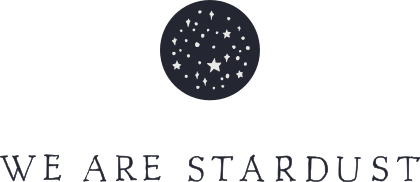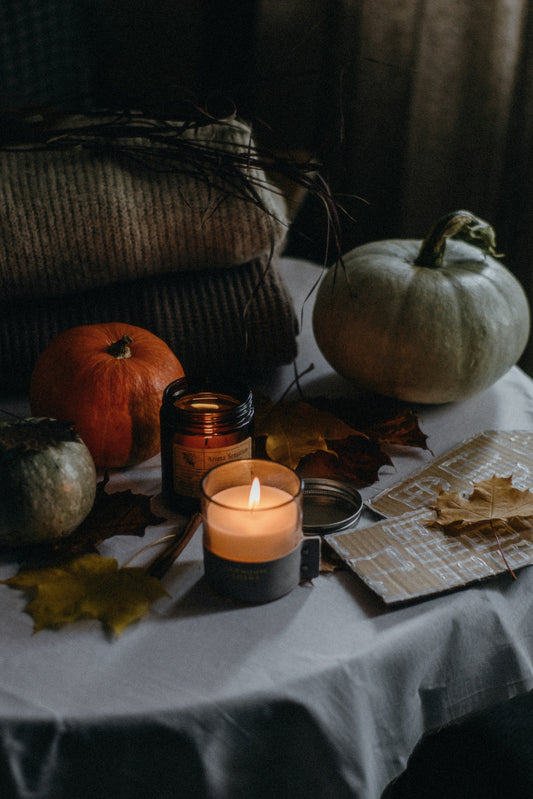Have you ever felt that the history of science doesn't belong to us women? We hear and celebrate the fathers of science - Copernicus, Galileo, Newton, Darwin, Einstein - but rarely learn about the mothers of science.
A couple of weeks ago a friend of mine shared the most incredible poem with me - The Mushroom Hunters by Neil Gaiman (who wrote the fantasy novel Stardust). It celebrates the first ever scientists - the mothers of science - those who never made it into written history.
The poem was written for the The Universe in Verse event put together by Maria Popova from Brain Pickings and Janna Levin, astrophysicist and writer. It was an evening of poetry celebrating science and the scientists who have taken us to where we are today. As an aside, the original article about the poem on Brain Pickings starts with a quote I absolutely love:
“We especially need imagination in science. It is not all mathematics, nor all logic, but it is somewhat beauty and poetry,” written by Maria Mitchell, astronomer, in her diary in 1871.
'The Mushroom Hunters' was read by Amanda Palmer, musician, artist and (in the context of this poem it is important to note) Neil Gaiman's wife. Listening to it nearly brings me to tears. The first ever scientists - the mushroom hunters. The women nearly forgotten. Barely acknowledged. But they gave us the most precious thing - life. They helped us survive because of their knowledge.
This connection through time, the knowledge and skills handed down from mother to daughter resonated with me. Instead of a discipline forged in distant academic institutions where women were not allowed to study, it is something that is in our bones. Fundamental skills needed for us to study the nature and behaviour of the universe. It is this study and deeper understanding of the world around us that inspires my work for we are stardust. I try to make each we are stardust design capture a fact, story or curiosity to inspire a moment of wonder for the natural world. A moment of wonder to be shared with loved ones.
The first video of Amanda reading the poem was recorded during The Universe in Verse and gives some context beforehand.
Below is an audio recording of the poem by itself:
THE MUSHROOM HUNTERS
Science, as you know, my little one, is the study
of the nature and behaviour of the universe.
It’s based on observation, on experiment, and measurement,
and the formulation of laws to describe the facts revealed.
In the old times, they say, the men came already fitted with brains
designed to follow flesh-beasts at a run,
to hurdle blindly into the unknown,
and then to find their way back home when lost
with a slain antelope to carry between them.
Or, on bad hunting days, nothing.
The women, who did not need to run down prey,
had brains that spotted landmarks and made paths between them
left at the thorn bush and across the scree
and look down in the bole of the half-fallen tree,
because sometimes there are mushrooms.
Before the flint club, or flint butcher’s tools,
The first tool of all was a sling for the baby
to keep our hands free
and something to put the berries and the mushrooms in,
the roots and the good leaves, the seeds and the crawlers.
Then a flint pestle to smash, to crush, to grind or break.
And sometimes men chased the beasts
into the deep woods,
and never came back.
Some mushrooms will kill you,
while some will show you gods
and some will feed the hunger in our bellies. Identify.
Others will kill us if we eat them raw,
and kill us again if we cook them once,
but if we boil them up in spring water, and pour the water away,
and then boil them once more, and pour the water away,
only then can we eat them safely. Observe.
Observe childbirth, measure the swell of bellies and the shape of breasts,
and through experience discover how to bring babies safely into the world.
Observe everything.
And the mushroom hunters walk the ways they walk
and watch the world, and see what they observe.
And some of them would thrive and lick their lips,
While others clutched their stomachs and expired.
So laws are made and handed down on what is safe. Formulate.
The tools we make to build our lives:
our clothes, our food, our path home…
all these things we base on observation,
on experiment, on measurement, on truth.
And science, you remember, is the study
of the nature and behaviour of the universe,
based on observation, experiment, and measurement,
and the formulation of laws to describe these facts.
The race continues. An early scientist
drew beasts upon the walls of caves
to show her children, now all fat on mushrooms
and on berries, what would be safe to hunt.
The men go running on after beasts.
The scientists walk more slowly, over to the brow of the hill
and down to the water’s edge and past the place where the red clay runs.
They are carrying their babies in the slings they made,
freeing their hands to pick the mushrooms.
What do you associate with the history of science? What were you taught at school? I'd love to hear your thoughts in the comments.
Read more:
- April Inspiration: Talking trees
- Celebrating scientific illustrators for Women's History Month - about two sisters in the Nineteenth Century who were mushroom specialists




